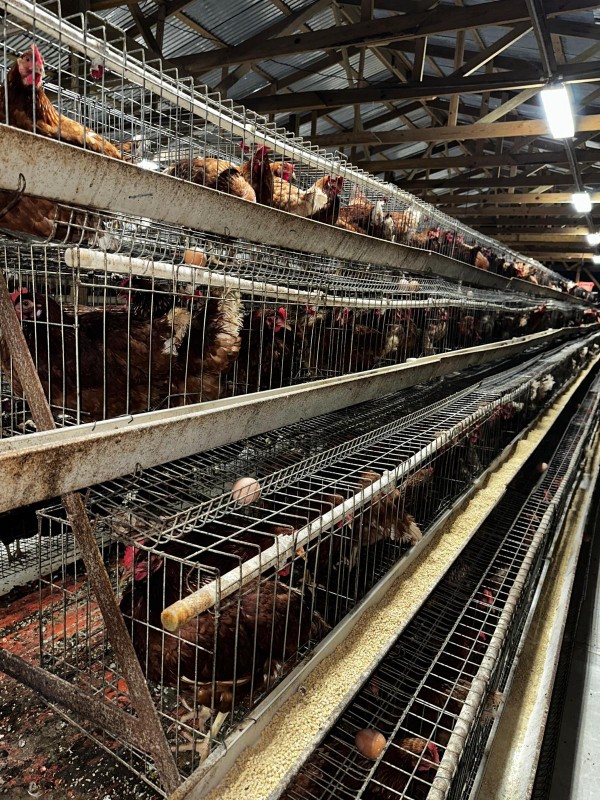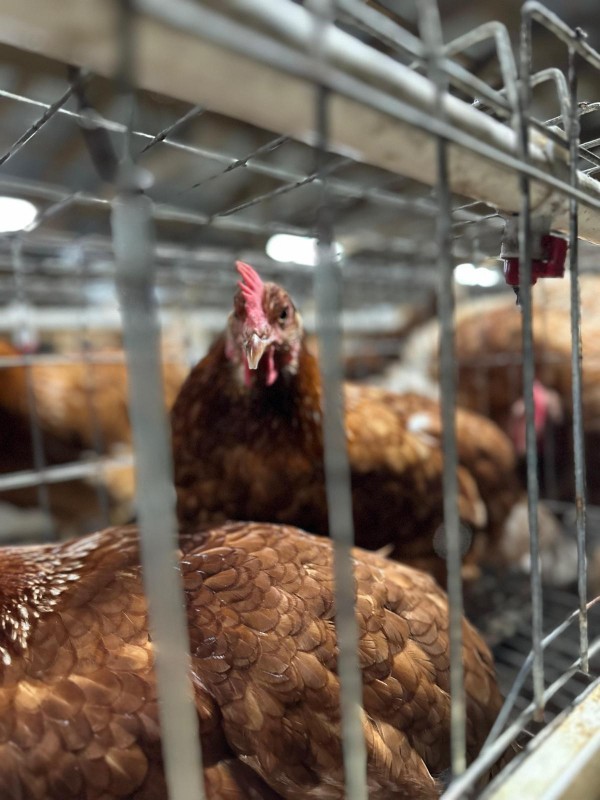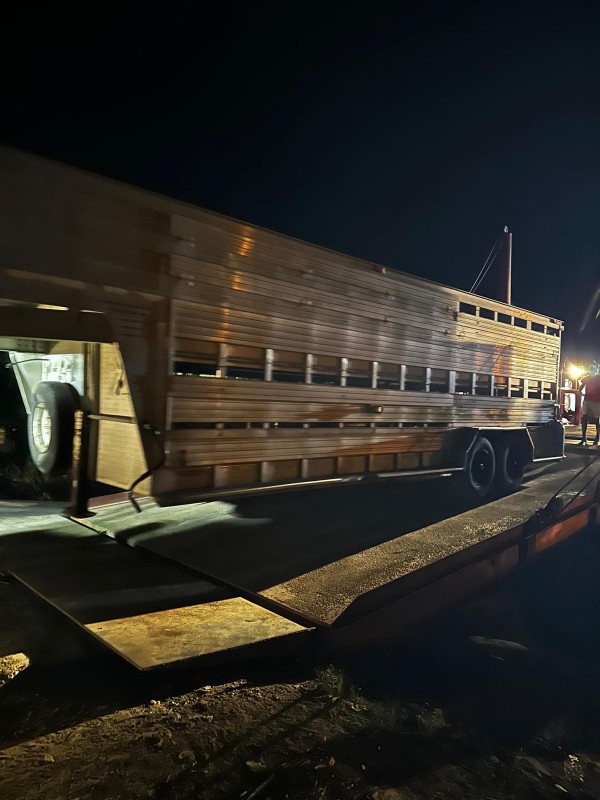BAMSI Increases production at Poultry Facility
BAMSI STEPS UP PRODUCTION AT POULTRY FACILITY
BAMSI INCREASES NUMBERS AT ITS POULTRY FACILITY IN NORTH ANDROS
Nassau, Bahamas, August 2nd, 2023: The Bahamas Agriculture & Marine Science Institute (BAMSI) is ramping up efforts to build capacity at its Poultry Research and Training Centre as the latest batch of layer hens were shipped on the MV Prince on Friday to North Andros. Some 600 Rhode Island Red Layer Hens made the seven-hour trip and were promptly transferred to the enriched cage-system at BAMSI’s farm where they are expected to produce almost 500 eggs per day.
Justin Taylor, BAMSI’s Poultry Specialist, explained the importance of the poultry programme, saying Bahamian consumers should know that they are getting fresh eggs from BAMSI. “These eggs are fresh, when you look at the carbon footprint, it takes five to six days to get to a table and in some cases it could go from the chicken to the table in hours, that’s amazing.”
He said that fresher eggs also have an impact when used in recipes. Cakes, pastries and other baked goods that use eggs will be enriched and items like mayonnaise will collate better when fresh eggs are used. He added that with an increasingly health conscious population, restaurants and bakeries can advertise that they are using locally produced eggs in their recipes and customers will recognize the value in that, he added.
“With these imported brands we don’t know how fresh these eggs are, but BAMSI can reassure the public that their eggs are fresh and are fortified with nutrients such as omega3 which comes from the flaxseed in the feed. Customers can know what they are eating. Our chickens are never fed with antibiotics or hormones, they are given an all-natural feed so for our retail clients, that’s a good marketing perception,” Mr. Taylor said.
Another benefit of having egg production in the Bahamas is the flavour of the eggs, “because the nutrients will be there inside the eggs and will not have been depleted based on the age of the eggs that are produced locally. Eggs that are imported through the US take longer to reach the consumer, and this takes away from the taste because the essential minerals needed for egg composition and integrity have been depleted”.
With the shipment between New Providence and Andros, the five-month old birds will take a few days to get acclimatized to their new environment, but are expected to begin producing eggs within two weeks.
“There was a lot of rain on the journey to Andros, which will have affected them. And like humans, animals can experience getting seasick, so we were careful not to give them any food or water while on the journey. Now that they are on land, it will take some days for them to feel comfortable in their surroundings,” Mr. Taylor said.
In a matter of weeks, the full complement of birds should be in Andros, with the facility reaching its maximum capacity of 2,800 birds. Once fully outfitted, the Research Centre is expected to produce an estimated 584,000 eggs annually.
Mr. Taylor said that since its opening in April, egg production has been going well, but the recent heat wave has caused a temporary slowdown in production. “With the climate, the higher heat index…the heat reduces the feed intake by the birds, which results in production losses of five to seven per cent. This is not a normal heat, typically, these birds can produce in heat up to 94 degrees, but the higher temperatures are causing a reduction in production.”
He further explained that the bird house is designed to accommodate a climatic control fan system to provide chickens with adequate ventilation, but to mitigate these extreme temperatures, the poultry team has introduced additional fans to the climate smart system to draw the hot air out of the house.
The layers, which were purchased from a hatchery in Georgia, were just one-day old when they arrived in the Bahamas by plane. Mr. Taylor said the birds were kept in New Providence until they were five months old and were big enough to be safely housed at the Andros facility.
“We have an enriched cage system, and the birds can’t be put in the cage at a young age, they need to be a certain size so they won’t fit through the mesh. In a week or two they will be laying eggs once they get acclimatized to the environment.”
During the opening ceremony of the facility in April, BAMSI Chairman Senator, the Hon. Tyrel Young, said the Institute hoped to achieve a number of objectives through the Poultry Research and Training Centre, and the Layers Programme. “We will be increasing the number of healthy eggs on the market, introducing Bahamian students to the science of poultry and poultry management, and we will be supporting the education and training of farmers and agri-prenuers who are interested in either creating or growing a successful poultry business.”
Mr. Taylor said now that the layers programme is up and running and egg production is steady, the focus will turn to training and research. “In September we will begin feeding trials using probiotics and enzymes, and working with various forms of calcium alternatives in the diet (which is necessary for shell integrity) to see the impact on the shells. If the eggshell is thicker, it will allow eggshells to be strong, reducing breakage during handling and transport, minimizing any pathogens from penetrating the eggshell and allowing the composition of the nutrients to stay longer inside the egg. This can result in a longer storage time and support the scientific principles of Haugh Unit, which is a measure of the internal quality of an egg. This will be part of our outreach programme, as we share this information with poultry farmers.”
Another aspect of the research and outreach programme will involve using the chicken manure as fertilizer in crop production, including vegetables, and for banana and coconut tree production. The goal of the research component of BAMSI’s layers programme is to encourage increased entrepreneurial ventures in the agriculture sector, to help existing poultry farmers produce eggs sustainably and to offer varied learning opportunities in agriculture and agro-entrepreneurship to student.





